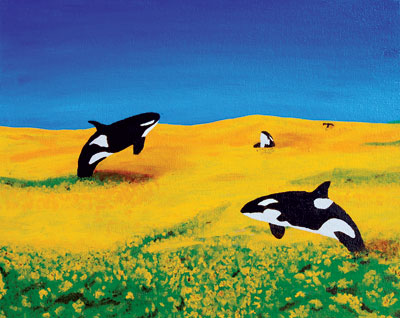All Nonfiction
- Bullying
- Books
- Academic
- Author Interviews
- Celebrity interviews
- College Articles
- College Essays
- Educator of the Year
- Heroes
- Interviews
- Memoir
- Personal Experience
- Sports
- Travel & Culture
All Opinions
- Bullying
- Current Events / Politics
- Discrimination
- Drugs / Alcohol / Smoking
- Entertainment / Celebrities
- Environment
- Love / Relationships
- Movies / Music / TV
- Pop Culture / Trends
- School / College
- Social Issues / Civics
- Spirituality / Religion
- Sports / Hobbies
All Hot Topics
- Bullying
- Community Service
- Environment
- Health
- Letters to the Editor
- Pride & Prejudice
- What Matters
- Back
Summer Guide
- Program Links
- Program Reviews
- Back
College Guide
- College Links
- College Reviews
- College Essays
- College Articles
- Back
SeaWorld’s Guide to Profiting from Animal Abuse
When thinking about the wonder of amusement parks, the beauty of nature, and the absolute majesty of the orca, we tend to omit the grittier details. We forget about or overlook the garbage, state of public bathrooms, and overall sketchiness that many amusement parks seem to carry with them. Now even with a few unsanitary flaws, marine parks are still epicenters of family fun, but many “slight flaws” dip into animal cruelty and cruel and unusual punishment. SeaWorld’s orcas live in tight cells or in solitude for most of their lives. They’re subject to the mental torment of being trapped and isolated as well as the physical torment of other whales, and trainers denying them food for not performing well. These magnificent animals must be retired from performing, and moved from SeaWorld for their health, and the betterment of our relationship with nature.
Tilikum, among other orcas at SeaWorld, is mistreated and confined to a pool that is barely large enough to allow him space to move. These whales contract illnesses, have shorter life spans, and live painful lives because of the conditions SeaWorld keeps them in. It would be amazing if we could release the orcas back into the wild, but after living in captivity for so long, Tilikum and the others would find it very hard to adjust. This is why we need sea pen sanctuaries. They would act as marine wildlife reserves for the orcas. They would still receive the care they are reliant on from us, but would have a much more open and natural space to live in.
There are many flawed practices that make SeaWorld a terrible home for the whales. They are forced to do shows and are punished for not performing well, and often when one orca doesn’t perform well, the others will later attack him. SeaWorld would also isolate the whales. For most of his life Tilikum has been living in solitary confinement. He is barely able to move and isn’t able to socialize with any other orcas.
Just the act of isolating Tilikum shows how cruel SeaWorld is to it’s animals. The act of solitary confinement to such a social creature has damaging effects. In the 1950s, a study done at University of Wisconsin by Harry Harlow showed the horrific effects of solitary confinement on monkeys. He enclosed them in a cage that was impossible to get out of and after around two days “most subjects typically assume a hunched position in a corner of the bottom of the apparatus. One might presume at this point that they find their situation to be hopeless.” We see this type of behavior in the whales too. After being caged Tilikum would just float in the water, not moving for hours. Harlow also wrote that isolation left the monkeys “profoundly disturbed, given to staring blankly and rocking in place for long periods, circling their cages repetitively, and mutilating themselves… Twelve months of isolation almost obliterated the animals socially.”
SeaWorld wants you to believe that it’s the best place for the orcas, but living in captivity harms their health greatly. In a CNN article by Naomi Rose, a study showed that the orcas experience chronic stress and have weaker immune systems because of the conditions they are kept in. Tilikum is currently ill with a bacterial lung infection and is still just being kept in the same harmful conditions. Moving him to a sea pen sanctuary would allow for people to help Tilikum recover while giving him a natural, safe, and comfortable space to live in.
Tilikum is dying in isolation and other orcas are living in unsuitable conditions. SeaWorld should not be allowed to continue making profit off of the pain and suffering of these whales. Seaworld should not be allowed to market such atrocities. We must step up and stop this unfair treatment of orcas.
Sea pen sanctuaries are only in their beginning stages and there is a lot of work to be done. This work can be expedited by protesting SeaWorld, bringing these issues to the attention of government and interest groups, and by just being educated on the whole matter. The longer we stay silent and complacent, SeaWorld makes more money while abusing and exploiting Tilikum and their other orcas.

Similar Articles
JOIN THE DISCUSSION
This article has 0 comments.
